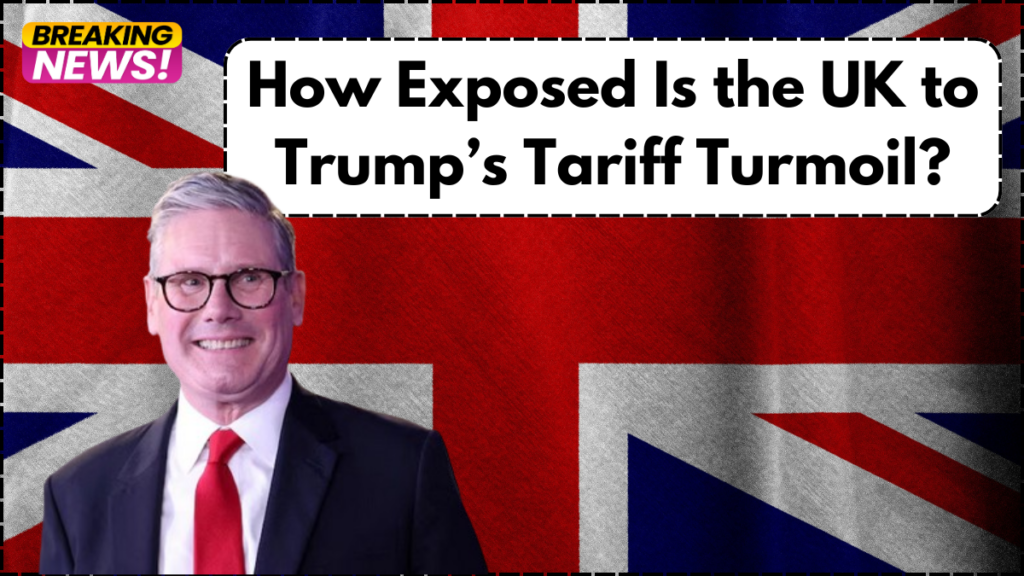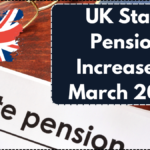As of April 2025, economic tensions between the United States and China have escalated dramatically. Both countries are locked in a tit-for-tat tariff standoff, imposing increasingly harsh import taxes on each other’s goods. While these two global giants are at the center of the dispute, the ripple effects are being felt across the world—including in the United Kingdom.
President Donald Trump, who resumed office in early 2025, has reintroduced 10% tariffs on imports from multiple countries. However, for now, most of these nations have been granted a 90-day reprieve from further tariff hikes. The UK is among them, facing a 10% levy on exports to the US—matching the rate first applied in late March 2025.

UK Businesses Caught in the Middle
British exporters, particularly in manufacturing, food production, and automotive sectors, are now under strain. Companies must decide whether to absorb the increased costs, pass them on to consumers, or adjust supply chains. This could directly impact employment, future investment, and pricing strategies.
Due to global supply chain interdependence, British firms could feel the consequences of tariffs imposed on other nations as well. For instance, if Chinese goods become too expensive in the US and are redirected to Europe, UK manufacturers could face stiff price competition.
Table: Key UK Sectors Affected by the Trade War
| Sector | Exposure to US Tariffs | Potential Impact |
|---|---|---|
| Automotive | High | Reduced exports, job risks |
| Food & Beverage | Moderate | Price adjustments, sourcing issues |
| Manufacturing | High | Supply chain disruption |
| Financial Services | Low (indirect) | Affected via related service contracts |
| Advertising | Moderate | Spending cuts by US clients |
Growth Forecasts Under Pressure
While the UK’s reliance on goods exports is less than other nations, the current trade tension still poses a significant challenge. Around 66% of UK exports to the US are services—including finance, legal, and advertising. These typically aren’t subject to tariffs, offering a buffer. However, services tied to physical goods (like product support or logistics) may still see reduced demand.
The UK’s high exposure to international financial markets also means it could be vulnerable to global economic shocks. The Bank of England recently acknowledged that weaker global demand could weigh on UK growth in 2025, despite domestic resilience.
Chancellor Rachel Reeves has already indicated that slower growth will strain public finances. With tax revenues potentially falling short, speculation is growing that the Autumn Budget could include new tax increases to stay within fiscal rules.
ISAs, Pensions, and Market Volatility
UK investors have not been spared from global financial market turbulence. Stock markets have experienced sharp fluctuations in Q1 and Q2 of 2025, dragging down the value of pensions, ISAs, and other long-term investment vehicles. Bond markets have also seen volatility, challenging the notion of safe-haven assets.
However, financial advisors stress that these investment vehicles are designed for the long haul. Short-term dips, while unsettling, are often balanced out over time. Additionally, British households have relatively limited direct exposure to the stock market compared to US investors.
Falling Inflation and Interest Rate Relief?
One silver lining amid the uncertainty is the potential for lower inflation. Falling commodity prices—including oil, copper, and agricultural goods—may help reduce overall price levels in the UK. Cheaper imports redirected from the US could also contribute to softer inflationary pressure.
With global growth slowing, financial markets are betting that the Bank of England could cut interest rates up to four times by the end of 2025. That could lower borrowing costs for mortgages, credit cards, and personal loans, offering some relief to UK households.
The central bank has also pointed out that household debt in the UK is at its lowest relative level since 2001, suggesting consumers are better positioned to ride out economic storms than in past crises.
Conclusion
While the UK is not at the heart of the US-China trade dispute, it is undoubtedly feeling the tremors. From weakened growth prospects and stressed public finances to investor anxiety and potential rate cuts, the nation stands at a delicate crossroads. Resilience in services and banking may shield some sectors, but uncertainties remain as trade wars reshape the global economic landscape.
FAQs
How is the UK affected by the US-China trade war?
The UK is experiencing economic headwinds due to 10% tariffs imposed on its exports to the US. British exporters face reduced competitiveness and possible job losses, while broader market instability affects investment and growth.
What sectors in the UK are most exposed to the trade war?
Industries such as automotive manufacturing, food production, and advertising are among the most affected. These sectors either directly export to the US or are indirectly impacted by global supply chain shifts.
Will the UK see higher taxes in 2025?
Possibly. With slower economic growth forecasted, Chancellor Rachel Reeves may introduce tax increases in the Autumn Budget to maintain fiscal discipline and offset revenue shortfalls.
How are pensions and ISAs affected?
Market volatility in early 2025 has reduced the value of many investment portfolios. However, as long-term savings products, pensions and ISAs are expected to recover over time.
Are there any benefits for the UK amid this turmoil?
Yes. Lower oil and commodity prices may reduce inflation, and interest rate cuts by the Bank of England could ease borrowing costs for households and businesses.
For More Information Click Here
Pari is a passionate writer known for captivating stories that blend imagination and reality. Inspired by travel, history, and everyday moments, Pari crafts narratives that resonate deeply with readers.




